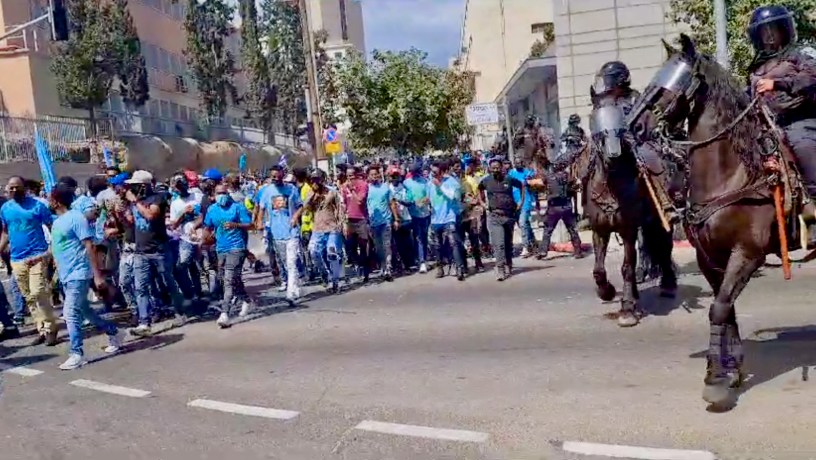Viewing the demonstrations by pro-democracy Eritreans living in exile on 2 September, and in the weeks before, one is left with the feeling that something is stirring.
A generation of younger Eritreans is no longer willing to accept the dictatorship imposed on them by their unelected president, Isaias Afwerki.
In 1949 the Mao Zedong famously told the Chinese Communist Party: “The Chinese people have now stood up” – throwing off the yoke of foreign domination.
The Eritrean people are not there – yet.
But, for the first time since Eritrean forces marched into Asmara in 1991, Isaias Afwerki is facing the loss of popular support in the exiled community – the diaspora.
Not the first time Isaias has been challenged
Even while the liberation war against Ethiopia was raging he crushed opposition within his movement, from both left and right, to emerge as the leader of the main movement, the EPLF.
On the eve of formal independence in May 1993 Eritrean troops, in Asmara, had been told they would not receive any pay for the next four years – irrespective of what job they were allocated to.
They took to the streets, demanded an audience with Isaias, and were only pacified when he met them and promised to listen to their demands. As soon as they went back to their barracks he had the leaders of the revolt arrested and killed.
Since then there have been other acts of resistance – most notably in 2001 when some of Isaias’s closest allies (the G15) demanded that the democracy they promised the Eritrean people should be implemented and the draft constitution ratified. They were locked up without being taken before a court.
In 2013 a tank column reached the outskirts of Asmara, attempting to force Isaias out of office. The revolt soon collapsed and its leaders were hunted down.
The diaspora today
Throughout the years Eritreans abroad have – largely – backed their leaders back home. First during the 30 year war of independence (1961 – 1991) and then throughout its many wars, including the 1998-2000 war with Ethiopia.
Today that unswerving support is evaporating – fast.
Festivals, which the Eritrean leadership have organised among the exile community abroad since 1974 (in Bologna) are now being challenged.
Younger Eritreans, who risked their lives to cross the Sahara and the Mediterranean, are no longer willing to put up with the extraction of taxes and the surveillance of their lives by the regime while living in Europe and America.
Older Eritreans debated and discussed opposition.
New movements have emerged in the past year that are no longer willing to just talk.
“Action, not words”
These groups, Bright Future (led by Beyene Gerezgiher) and Brigade Nehamedu (an informal social media movement), are mobilising Eritreans across the world.
They are openly in revolt, willing to cross borders to support each other.
As a result pro-government “festivals” design to raise money for the Isaias regime and mobilise the exiles in his support have been opposed in country after country.
This summer protests against the regime have challenged festivals in the USA, Germany, Sweden, UK, and Canada.
Over the last weekend alone there were angry demonstrations in Tel Aviv (Israel) Oberuzwil and Zurich (Switzerland) and Bergen (Norway).
Eritrean government organised propaganda events were cancelled.
Clashes with Eritrean pro-government security – the notorious Eriblood or Group 52 – have taken place.
Some of these pro-government groups came armed and opened fire on the demonstrations.
The clashes are growing more dangerous. Young Eritreans are being shot, beaten and hospitalised.
But they are not deterred. As one told me from his hospital bed in Israel yesterday: “freedom is my human right!”



Israel should send them home, if they have NO danger at home.
No more Supposed to detector in Israel.
Thanks for your support us !
Thanks for understanding our pain!
Thanks again Martinpaut !